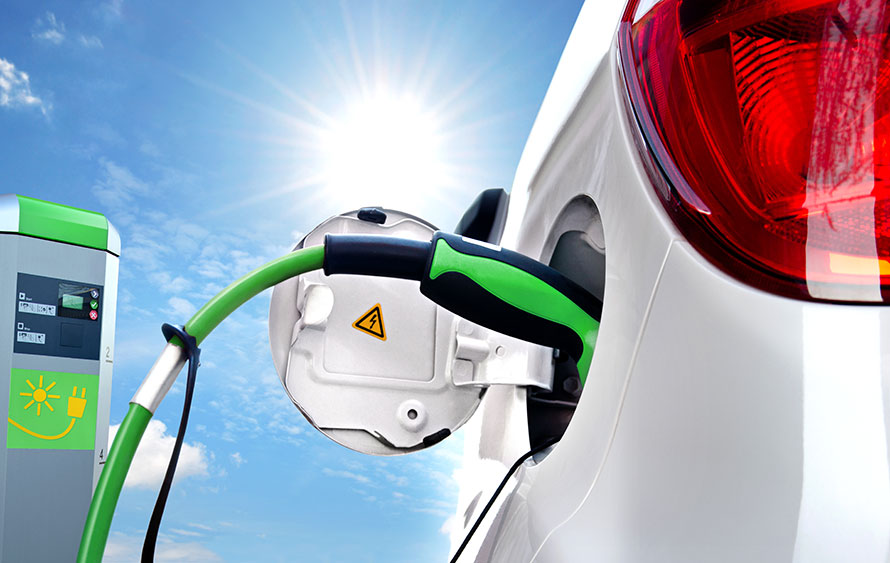The Current Landscape
Europe stands at the forefront of an electric vehicle (EV) revolution, with charging stations becoming as ubiquitous as vehicles. Today, the continent boasts a burgeoning network of stations driven by key players like Tesla and ChargePoint. Although starting from a less dense network, Bulgaria is rapidly catching up, fueled by significant EU funding and local initiatives.
Key Players and Regulators
The EV charging station business is dominated by giants like Tesla, ABB, and Siemens, alongside emerging regional players such as GreenWay and IONITY. Regulatory oversight, primarily from the European Union, is crucial in standardizing and promoting infrastructure development.
The most prominent manufacturers of EV charging stations as of 2023 are:
- Tesla: Holds the top spot with the largest market share, owning and operating over 45,000 Superchargers and 40,000 Wall Connectors worldwide.
- ChargePoint: Established in 2007, it has the most extensive network with over 115,000 charging stations globally and a significant influence in EV charging.
- ABB is a Swiss-Swedish multinational known for its fast charging solutions for buses and cars and partnerships for developing advanced EV chargers.
- Siemens: One of Europe’s largest engineering companies, Siemens has installed more than 300,000 public chargers across Europe and offers comprehensive EV charging solutions.
- Schneider Electric: A French multinational known for its comprehensive EV charging solutions for residential, commercial, and fleet use, with solid revenue growth in this sector.
- EVgo: Founded in 2010, EVgo is a leader in the EV industry, known for its fast charging solutions and operating more than 900 locations in the US.
- Blink Charging: Founded in 2009, Blink Charging designs, manufactures, and operates over 23,000 charging stations, serving over 180,000 registered members globally.
- Efacec: A leading energy, engineering, and mobility enterprise in Portugal, specializing in a broad spectrum of EV charging needs, including quick and ultra-fast charging.
- EVBox: With more than 500,000 charging ports installed worldwide, EVBox focuses on designing flexible, modular EV charging solutions and supports innovative charging features to optimize energy usage.
In the European Union and Bulgaria, the regulatory landscape for electric vehicle (EV) charging stations involves several key entities:
European Union Level
- EU Competition Commissioner: The European Commission, mainly through the role of the EU Competition Commissioner, is vital in overseeing the EV charging market. The Commission’s focus includes ensuring fair competition and preventing market dominance by a few entities. It identifies potential competition concerns and supports the green transition while safeguarding economic growth.
- State Aid Regulations: The EU also regulates state aid to support a resilient and greener market. This involves approving measures such as funding for renewable energy projects while ensuring that such assistance does not unfairly favor certain companies or crowd out private investment.
- Sustainable Energy Development: The EU is vigilant in promoting sustainable energy uses and ensuring that the green transition in the EV charging market is practical and durable. This approach includes keeping an eye on emerging markets and fostering healthy competition.
Bulgaria Level
- Inter-Governmental Work Group: Bulgaria has established an inter-governmental work group to develop a national work program and a roadmap for developing electricity mobility up to 2025, extending to 2030. This group is responsible for legislative changes and promoting investments in the EV sector.
- Business Organizations: In Bulgaria, key players such as EVIC (Electric Vehicles Industrial Cluster) and Eldrive International significantly contribute to developing the national charging infrastructure for EVs. These organizations focus on adapting legislation and regulatory frameworks, developing user-friendly infrastructure, and promoting eco-friendly mobility solutions.
Funding Sources and Programs
The EU’s Connecting Europe Facility (CEF) is a cornerstone, offering billions for transport and energy projects. In tapping into this resource, Bulgaria is channeling funds into charging infrastructure, with plans to install hundreds of stations nationwide.
The European Union is financing its ambitious project to expand the EV charging infrastructure through various funding mechanisms and initiatives:
- EXPAND-E Consortium Funding: The EXPAND-E (EXpanding Performance and Network Density – Electric) project, led by IONITY and GreenWay, has been awarded approximately €70 million by the European Climate Infrastructure And Environment Networks Executive Agency (CINEA). This funding is part of the EU’s initiative for clean transport infrastructure along the Trans European Transport Network (TEN-T) roadways. The EXPAND-E project aims to deploy more than 2,100 recharging points in more than 450 locations across 22 EU Member States.
- Connecting Europe Facility (CEF) for Transport: The EU has made €1.5 billion available for European projects on alternative fuel transport infrastructure under the CEF for Transport. This facility is part of a broader effort to develop an efficient, well-connected European infrastructure network. Projects like EXPAND-E are considered crucial steps towards sustainable and interconnected transport systems for passengers and freight.
- Overall CEF Funding Structure: The Connecting Europe Facility (CEF) program, with a budget of €30 billion for 2021-2027, will fund transport, energy, and digital projects that add value to the EU. This includes the development of alternative fuel charging infrastructure. A significant portion of the CEF funds, 60 percent, is earmarked for projects that help achieve the EU’s climate objectives. The CEF is structured around three pillars, allocating around €23 billion to transport projects, €5 billion for energy projects, and €2 billion for digital projects.
- Simplification of Permit Procedures: New Trans-European Network (TEN-T) rules have been approved to facilitate the completion of these projects. These rules aim to simplify the permit-granting procedures for TEN-T projects, requiring Member States to ensure that obtaining a permit for a project should not take longer than four years. This simplification is intended to expedite the transport projects, including those related to EV charging infrastructure.
These funding mechanisms and regulatory changes reflect the EU’s commitment to developing a robust EV charging infrastructure, essential for the widespread adoption of electric vehicles and achieving the EU’s climate goals.
The 2030 Vision
By 2030, Europe aims for a seamless, high-capacity EV charging network. Bulgaria’s ambitious plans include over 200 fast charging stations and innovative hydrogen charging solutions. The goal is a comprehensive network that covers 80% of municipalities, with Bulgaria benefiting from EU grants and local budget allocations.
The European Union has passed a law requiring the installation of fast-charging stations every 60 kilometers along highways by the end of 2025. Additionally, Europe will mandate that charging plazas with at least 400 kW total capacity (and at least one 150kW+ charger) must be placed at least every 60 km by 2026, and the minimum capacity will increase to 600 kW in 2028, requiring at least two 150kW+ chargers. For reference, as of 2021, the EU offered an average of five fast public chargers for every 100 km.
How Will Bulgaria Finance Its EV Charging Station Development?
Bulgaria will indeed benefit from European Union funding sources for the development of its electric vehicle (EV) charging infrastructure:
- EU Grants and Local Budget: Bulgaria has allocated 92 million levs (approximately 47 million euros) for the development of EV charging infrastructure, with a significant portion of this funding coming from the European Union. The plan includes building 160 charging stations for electric vehicles on roads nationwide and four charging stations at national ports. Out of these funds, up to 40 million euros will come from EU grants from 2021 to 2027. This initiative is part of Bulgaria’s efforts to enhance its EV charging network, which has been one of the least dense in the EU.
- Nationwide Charging Infrastructure Development: Bulgaria has planned two major programs with a combined value of 172 million levs (approximately 88 million euros) for building its charging infrastructure for green transport. The first program, worth 140 million levs, involves constructing over 200 fast charging stations for electric cars nationwide, using power from renewable sources. The second program, valued at 32 million levs, is dedicated to constructing eight hydrogen charging stations for public transport and heavy-load vehicles. These stations will be located in border areas, key roads, and major cities like Sofia, Varna, and Burgas. The overarching goal is to complete a nationwide charging infrastructure for electric vehicles by the end of 2025, which is expected to cover 80% of the municipalities in the country.

Price for charging, and who regulates it?
In the European Union, the regulation of prices at electric vehicle (EV) charging stations is influenced by a combination of market forces and legislative actions:
European Commission and Member States
A study by Avere and Fier Automotive, commissioned by the European Commission, explored the pricing of electric vehicle recharging across Europe. However, due to the significant divergence and complexity in tariff structures within the EU and its Member States, it was challenging to establish average recharging prices per Member State. This complexity can hinder e-mobility advancement due to concerns about opaque recharging tariffs. Therefore, the European Commission and Member States have made recommendations for future legislative action, particularly concerning price transparency.
New EU rules mandate simpler charger payments. These rules require that customers must be able to pay with cards or contactless devices at charging stations, and prices must be displayed clearly. This directive aims to standardize the payment process across various networks, some of which previously required subscriptions or app downloads.
In Bulgaria, specific regulatory bodies or market drivers that influence the pricing at EV charging stations do not exist. However, it is likely that similar to the broader EU context, a mix of market forces, national regulations, and potentially EU directives would play a role in regulating the prices that citizens pay at EV charging stations.
The Road Ahead
The transformation of Europe’s and Bulgaria’s EV charging landscape is a testament to collaborative efforts, cutting-edge technology, and a shared vision for a greener future. With robust investment and regulatory support, the coming decade will witness a significant leap in sustainable transportation, marking a new era in the region’s journey towards an electrified, eco-friendly mobility paradigm.



